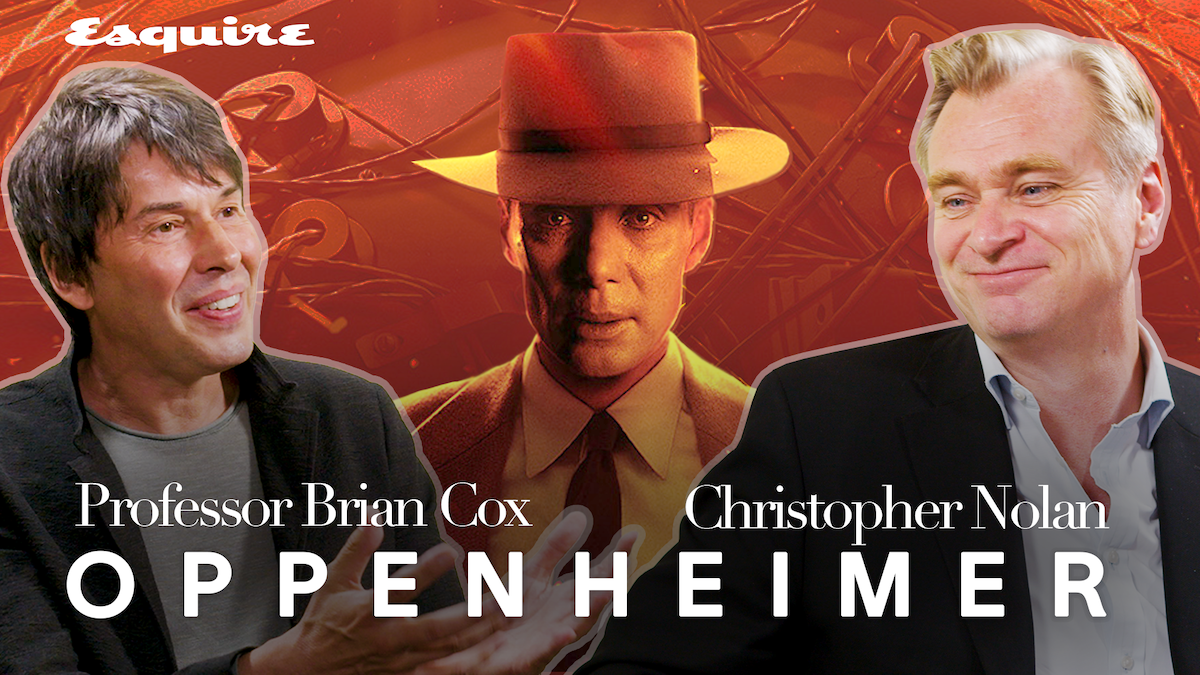Christopher Nolan’s new film, Oppenheimer, is many things: a biopic of the eponymous American physicist (played by Cillian Murphy), an exploration of wartime politics, and a parade of some very good suits. Based on the Pulitzer Prize-winning book American Prometheus: The Triumph and Tragedy of J. Robert Oppenheimer by Kai Bird and Martin J. Sherwin, the film tackles questions of responsibility, legacy, and ethics over a three-hour running time (it is Nolan’s longest flick to date). There is, quite simply, a lot to talk about. To delve into some of the film’s knottier topics, Esquire hosted a conversation between Nolan and Professor Brian Cox, no stranger to communicating complicated science on a mass scale.
Their wide-ranging conversation touches on the scientist’s controversial legacy, the links between Oppenheimer’s research and today’s use of AI, as well as some burning questions for movie-goers. How, exactly, do you prepare a cast for a film of this scale and scientific complexity? What’s up with those black-and-white scenes? And how does Oppenheimer fit alongside Nolan’s much-loved filmography, from time-travel thriller Tenet to wartime epic Dunkirk? You will not need a science textbook to understand everything going on, but it might be helpful to have Google open.
Oppenheimer is in cinemas on Friday 21 July
Henry Wong is a senior culture writer at Esquire, working across digital and print. He covers film, television, books, and art for the magazine, and also writes profiles.












